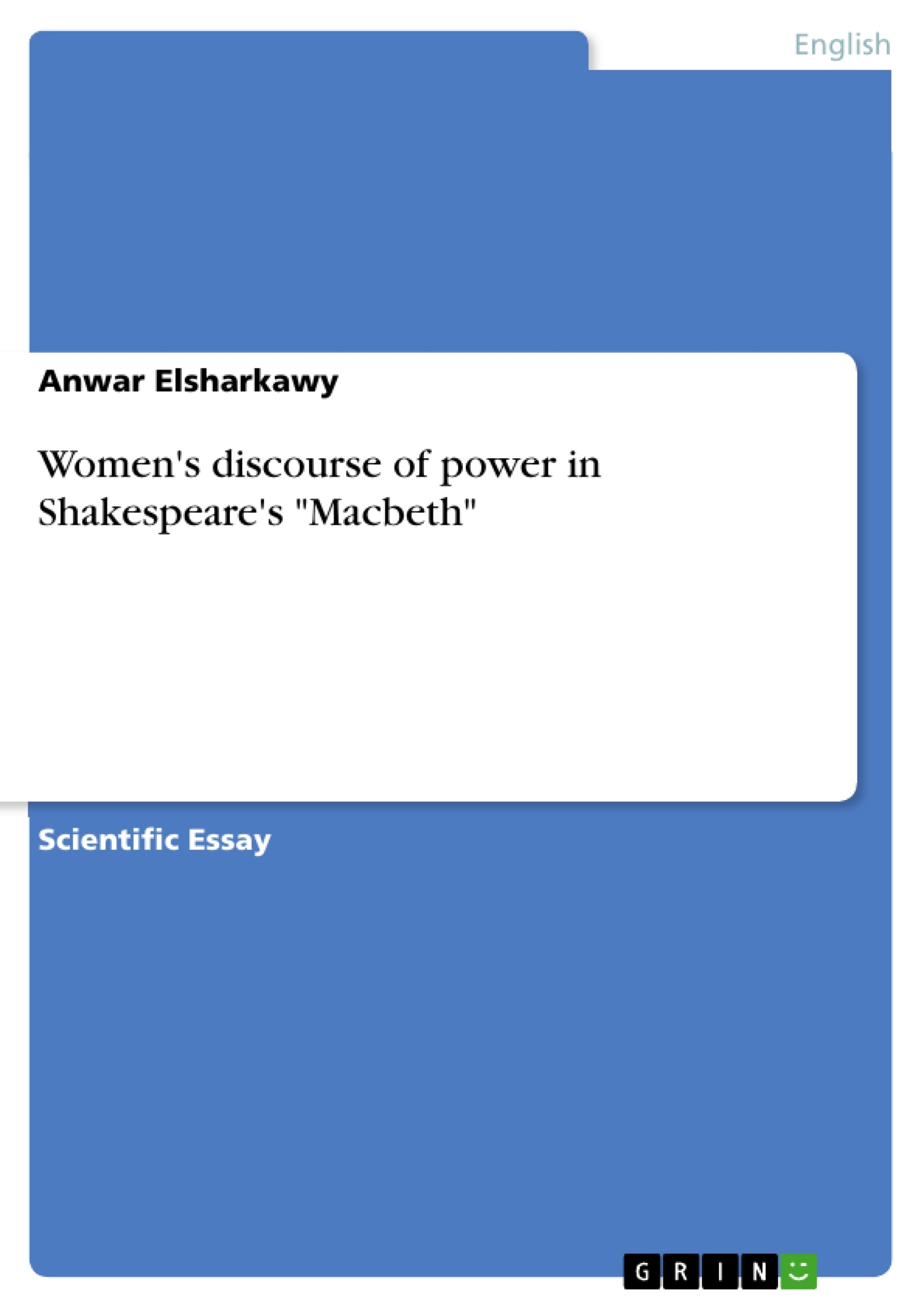Women in "Macbeth" (i.e., Lady Macbeth and the Witches) speak a strange language that is very similar to what women seek today. This language can be described as antilanguage: a language by which women can direct, control, and dominate men.
This paper introduces a contradictory statement to the current views in discourse analysis, which indicate that women are powerless, trivial, dominated, and sexual objects (Andersen, 1988, Chaika, 1982; Lakoff, 1975) by showing women as powerful, serious, and dominating as men. In doing so, it focuses on the recent views of discourse, power, and women, taking Shakespeare's "Macbeth" as a field of application by analyzing Lady Macbeth’s turns of talk.
Inhaltsverzeichnis (Table of Contents)
- Introduction
- The Problem of the Study
- Methodology
- Theoretical Background
- Analysis
- Literary analysis
- Linguistic analysis
- Directives in Macbeth
- Responses to Directives
- Status and Power
- Conflict and Topic Control
- Floor
- Discourse of Power
- Status and Power in Macbeth
Zielsetzung und Themenschwerpunkte (Objectives and Key Themes)
This paper investigates the discourse of power employed by women in Shakespeare's Macbeth, challenging the traditional view that portrays women as powerless and subservient. By analyzing Lady Macbeth's language, it aims to demonstrate that women can be powerful and assertive, effectively wielding their language to influence and control men.
- Women's language as a tool for power and control
- Challenging traditional views of women as powerless
- Analyzing the use of directives, topic control, and status in women's discourse
- The role of social context in shaping the perception of power
- The intersection of language, power, and gender in Shakespeare's work
Zusammenfassung der Kapitel (Chapter Summaries)
The introduction presents the argument that women in Shakespeare's Macbeth, particularly Lady Macbeth, utilize a specific type of language that signifies power and control. This contrasts with traditional views that portray women as submissive and lacking influence. The paper proposes an examination of Lady Macbeth's speech patterns to reveal her assertive and dominant nature.
The chapter titled "The Problem of the Study" delves into the prevailing perception in discourse analysis that women are often portrayed as powerless, trivialized, and objectified. It argues that while women may be socialized into accepting these roles, they possess the potential to be as powerful as men. The paper aims to demonstrate how Shakespeare's work challenges this social construct.
The "Methodology" section outlines the theoretical framework of discourse analysis that informs this study. It explains how the analysis of linguistic features, such as directives, topic control, and status, can unveil the dynamics of power in discourse. The paper emphasizes the complementary nature of linguistic analysis alongside literary analysis, enriching the overall interpretation.
The "Theoretical Background" chapter explores established theories of discourse analysis, specifically focusing on the concept of power. It examines how the ability to control the conversation, manage the topic, and establish status can signal power in communication. The chapter draws on prominent scholars like Stubbs and Bernstein, providing a theoretical foundation for the analysis of power in Macbeth.
The chapter titled "Analysis" delves into the linguistic and literary examination of Lady Macbeth's language. It analyzes her use of directives, examining the role of commands and requests in her discourse, demonstrating how these linguistic features contribute to her power dynamic.
Schlüsselwörter (Keywords)
The key focus areas of this paper include discourse analysis, power dynamics, gender roles, women's language, directives, topic control, status, Shakespeare, Macbeth, and Lady Macbeth. These terms encompass the primary themes and concepts explored within the text.
- Quote paper
- Anwar Elsharkawy (Author), 2013, Women's discourse of power in Shakespeare's "Macbeth", Munich, GRIN Verlag, https://www.grin.com/document/345220




